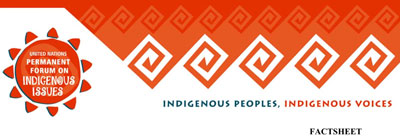Decolonizing Methodologies
Research and Indigenous Peoples
Linda Tuhiwai SmithTo the colonized, the term ‘research’ is conflated with European colonialism; the ways in which academic research has been implicated in the throes of imperialism remains a painful memory. This essential volume explores intersections of imperialism and research – specifically, the ways in which imperialism is embedded in disciplines of knowledge and tradition as ‘regimes of truth.’ Concepts such as ‘discovery’ and ‘claiming’ are discussed and an argument presented that the decolonization of research methods will help to reclaim control over indigenous ways of knowing and being.
10 May 2012
Paperback
ISBN: 9781848139503
256 pages
216mm x 138mmDevelopment, Anthropology, Cultural Studies, Development, Geography, Minorities and Indigenous Peoples, Sociology and Social Policy
Praise for the first edition:
‘This book is a counter-story to Western ideas about the benefits of the pursuit of knowledge. Looking through the eyes of the colonized, cautionary tales are told from an indigenous perspective, tales designed not just to voice the voiceless but to prevent the dying – of people, of culture, of ecosystems. The book is particularly strong in situating the development of counter-practices of research within both Western critiques of Western knowledge and global indigenous movements. Informed by critical and feminist evaluations of positivism, Tuhiwai Smith urges researching back and disrupting the rules of the research game toward practices that are more respectful, ethical, sympathetic and useful vs racist practices and attitudes, ethnocentric assumptions and exploitative research. […]
‘Finally, a book for researchers working in indigenous context. Finally, a book especially for indigenous researchers. […]
Stories of research experiences, examples of projects, critical examination, and mindful reflection are woven together to make meaningful and practical designs related to indigenous issues and research.’ – Jo-Ann Archibald, Sto:lo Nation and Director of the First Nations House of Learning at the University of British Columbia.
Source: Decolonizing Methodologies | Zed Books
Address : http://www.zedbooks.co.uk/paperback/decolonizing-methodologies-0
Date Visited: Sun Jun 03 2012 18:52:15 GMT+0200 (CEST)
In Anthropological Perspectives on Indian Tribes, another insightful book published last year, the anthropologist Subhadra Mitra Channa writes that people categorised as tribes are not merely remnants of a static past. | Learn more >>
Source: “Uncivilising the Mind: How anthropology shaped the discourse on tribes in India” by Richard Kamei (Caravan Magazine, 1 March 2021)
URL: https://caravanmagazine.in/books/anthropologists-tribes-india
Date Visited: 18 September 2021
Related posts

UN Permanent Forum on Indigenous Issues >>
See also
CBC Unreserved (Canada) radio space for indigenous community, culture, and conversation
eLearning: Center for World Indigenous Studies
Indigenous people are at the forefront of the struggle to save the planet
Internet Archive | Archive.org
People’s Archive of Rural India (PARI) | RuralIndiaOnline.org
Recovering tribal culture from the misrepresentation of mainstream media
Storytelling | Success stories